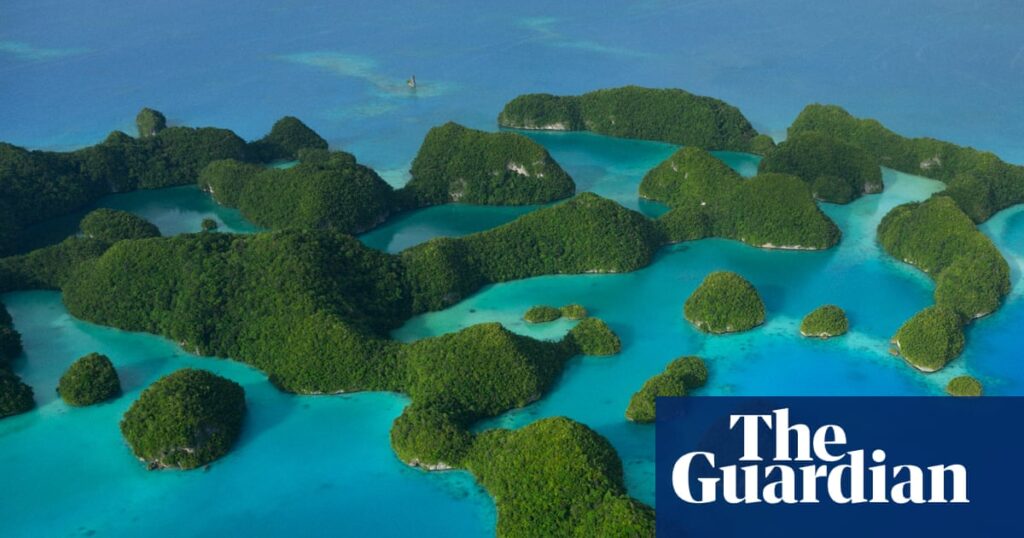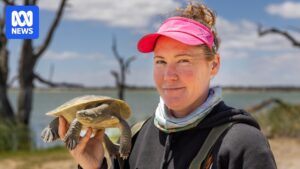
“It broke my heart.” These were the words of Surangel Whipps, the president of Palau, a small Pacific nation, as he recounted his experience listening to former U.S. President Donald Trump’s speech at the UN General Assembly in New York. On September 23, Trump delivered a controversial address, marking his first return to the UN since his re-election. Whipps, seated in the front row, expected strong rhetoric but was taken aback by Trump’s dismissal of the climate crisis as a “green scam” and “the greatest con job ever perpetrated.”
Palau, home to nearly 20,000 people, faces existential threats from rising sea levels and more intense storms. The island nation, like many others, stands on the frontline of climate change impacts, with the potential to become uninhabitable if global temperatures rise above 1.5°C for an extended period. Whipps emphasized the need for hope and collective problem-solving, yet what he witnessed was a disheartening tirade.
The Populist Tide and Climate Action
Whipps’s sentiments resonate with vulnerable countries worldwide. Despite years of progress in addressing the climate crisis, a populist wave has emerged, threatening to undo these efforts. Trump’s remarks are emblematic of a broader right-wing trend that challenges climate action. In the European Union, hard-right factions have delayed crucial emissions decisions, while in the UK, the Reform Party openly denies climate change. Similarly, in Argentina, Trump ally Javier Milei has taken drastic measures against climate policy.
However, public opinion remains largely in favor of climate action, with 89% of people globally expressing concern about the climate crisis. Pro-climate politicians have also achieved unexpected victories, such as Mark Carney in Canada, Anthony Albanese in Australia, and Claudia Sheinbaum in Mexico.
This week, these geopolitical forces will converge in Belém, a small city in the Amazon, for the UN climate summit, COP30. The summit, hosted by Brazil, features a packed agenda with 145 items to address over two weeks, including greenhouse gas reductions, financial aid for poorer nations, Indigenous rights, clean energy promotion, and forest preservation.
Challenges and Opportunities at COP30
Amidst national squabbles and competing interests, nature itself is providing a stark reminder of the urgency of the climate crisis. The past two years have seen temperatures exceed the 1.5°C threshold, with evidence of climate breakdown mounting. Recent events, such as Hurricane Melissa’s devastation in Jamaica and record temperatures in the Middle East, underscore the need for immediate action.
At the core of COP30 are two pressing questions: How can the world halt the acceleration of global warming, and can it be achieved in time to avert catastrophe? Brazil’s presidency of COP30, the 30th “conference of the parties” under the UN framework, aims to maintain unity amid global divisions. This summit is considered the most significant since the Paris Agreement, where countries set national targets to curb emissions. However, these targets have proven insufficient to meet the 1.5°C limit.
“The Paris agreement is our mandate; Belém is the test,” says Ban Ki-moon, former UN Secretary-General. “In a fractured world, the Paris agreement remains the one pact that shows humanity can act as one – but it needs resuscitation through action, not rhetoric.”
National Commitments and the Emissions Gap
Despite the urgency, fewer than 90 countries have submitted their Nationally Determined Contributions (NDCs), which outline their plans to reduce emissions. The deadline for submissions passed in February, yet major players like China and the EU have only provided indications rather than finalized plans. Current NDCs collectively achieve only a sixth of the necessary emissions cuts to meet the 1.5°C goal, according to UN estimates.
Brazil has been hesitant to address the inadequacy of NDCs, viewing them as the responsibility of individual nations. However, protests have led to the inclusion of NDC discussions in the COP30 agenda, though it remains uncertain if concrete steps will be taken to bridge the “emissions gap.”
Demands and Expectations from the Global South
Developing countries will judge COP30 based on its ability to meet their key demands: financial support to adapt to climate impacts and investment in clean energy. Mohamed Adow, director of Power Shift Africa, emphasizes the need for a fair deal, stating, “These are not acts of charity – they are investments in a stable, livable planet.”
Last year’s COP29 set a goal of $1.3 trillion annually for developing nations by 2035, but only $300 billion was pledged by wealthy countries, with the remainder expected from private sector initiatives. The absence of the U.S. further complicates achieving even this modest pledge.
Cooperation among countries in the global south, including China and middle-income nations, will be crucial. Arunabha Ghosh, chief executive of the Council on Energy, Environment and Water, highlights the importance of unity, stating, “We are all under collective siege and when you’re under siege, the more you hunker down together, the better chances you have to survive.”
Focus on Forests and Fossil Fuels
Brazil seeks to secure commitments for the Tropical Forests Forever Facility (TFFF), aiming to gather $25 billion initially, with the potential to attract $100 billion from global financial markets. This fund would reward forested regions for reducing deforestation and support biodiversity conservation.
However, the root cause of the climate crisis – fossil fuels – remains a contentious topic. At COP28 in Dubai, a historic resolution called for a transition away from fossil fuels. Yet, petrostates like Saudi Arabia have attempted to undermine this agreement. Brazil, a top oil and gas exporter, faces pressure to address this issue, balancing its economic interests with climate responsibilities.
A Just Transition and the Path Forward
Discussions on fossil fuels must consider a global “just transition,” ensuring that workers and vulnerable populations are not left behind in the shift to clean energy. UN Secretary-General António Guterres has highlighted the exploitation of countries rich in critical minerals, calling for an end to such practices.
With inevitable agenda disputes and a lack of trust between nations, Brazil’s role as facilitator will be pivotal. Despite the challenges, the world’s most vulnerable populations demand immediate action and financial support to adhere to the 1.5°C target.
“It is no longer sufficient to merely invoke the need to save multilateralism,” warns Meena Raman, head of programmes at the Third World Network. “We must deliver on saving the planet and protecting the world’s most vulnerable.”
As COP30 unfolds, the stakes are higher than ever. The outcomes of this summit will determine whether the world can unite to address the climate crisis or if divisions will prevail, leaving the most vulnerable to bear the brunt of inaction.





